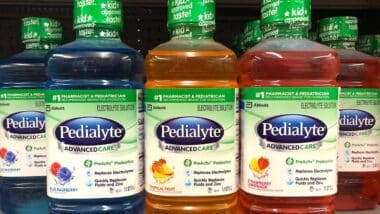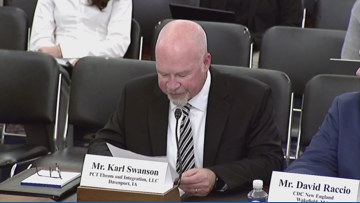

Kide Science Approved as Supplemental Early Childhood Curriculum in Missouri
HOUSTON–(BUSINESS WIRE)–Kide Science powered by Accelerate Learning has been approved to be added to Missouri’s recommended supplemental early childhood curriculum list by the Missouri Department of Elementary and Secondary Education’s (DESE) Office of Childhood.
Curriculum Approval Process
As part of Missouri’s early childhood curriculum approval process, Kide Science was reviewed by the Office of Childhood and evaluated using the Missouri Early Childhood Curriculum Rubric. The rubric is divided into four main areas: valid research, evaluation results, professional development, and developmentally appropriate. To be included on the approved early childhood curriculum list, the curriculum must also be aligned with the Missouri Early Learning Standards (MELS).
About Kide Science
Kide Science is a library of play- and story-based lessons and professional development materials for teachers of early childhood education. It is designed to complement any early years curriculum and work with any ability level.
Promoting STEM and Skills Development
The Kide Science lessons promote STEM topics and the development of social-emotional, literacy, critical thinking, and problem-solving skills. For students, each lesson features an immersive, imaginative story and illustrations that present STEM problems in a concrete, fun way. Kide Science also supports teachers with video instructions, printouts, assessment tools, scientific explanations for all the phenomena, and tips to adjust each lesson based on a child’s age and ability.
Impact and Partnership
“Kide Science’s pedagogical model is based on years of academic research,” said Sari Hurme-Mehtälä, co-founder and managing director of Kide Science at Accelerate Learning. “The lessons not only provide students with a fun and engaging way to learn, but they increase teachers’ confidence in using an inquiry-based approach as part of their everyday practice. We look forward to partnering with Missouri districts to help them ignite a love for STEM with their preschool students and teachers.”
About Accelerate Learning Inc.
Accelerate Learning provides STEM curriculum and professional development solutions that empower teachers, increase scores, and inspire students to become tomorrow’s STEM leaders. Its STEMscopes, Collaborate Science, Kide Science, and Math Nation curricula and resources are highly adaptable, accessible, and support instruction in any learning environment. The comprehensive, results-oriented solutions are used by more than 9 million students and 750,000 teachers across the country. For information, visit acceleratelearning.com or call 800-531-0864.
SDGs, Targets, and Indicators Analysis
1. Which SDGs are addressed or connected to the issues highlighted in the article?
- SDG 4: Quality Education
- SDG 5: Gender Equality
- SDG 8: Decent Work and Economic Growth
- SDG 10: Reduced Inequalities
- SDG 17: Partnerships for the Goals
The article discusses the approval of Kide Science, a supplemental early childhood curriculum, by the Missouri Department of Elementary and Secondary Education. This highlights the connection to SDG 4, which aims to ensure inclusive and equitable quality education and promote lifelong learning opportunities for all. Additionally, the curriculum’s focus on promoting STEM topics and the development of social-emotional, literacy, critical thinking, and problem-solving skills aligns with SDG 4. The article also mentions that Kide Science supports teachers, indicating a connection to SDG 4. Furthermore, the curriculum’s alignment with the Missouri Early Learning Standards (MELS) relates to SDG 4.
The article indirectly addresses SDG 5 by promoting gender equality in education. Although not explicitly mentioned, the curriculum is designed to be inclusive and accessible to all students, regardless of gender.
The mention of Kide Science as a library of play- and story-based lessons for early childhood education connects to SDG 8, which focuses on promoting sustained, inclusive, and sustainable economic growth, full and productive employment, and decent work for all. Play-based learning can contribute to the development of essential skills needed for future employment.
The article also touches on SDG 10 by emphasizing the importance of aligning the curriculum with the Missouri Early Learning Standards (MELS). This aligns with the goal of reducing inequalities by ensuring equal access to quality education for all children.
Lastly, the mention of partnerships between Kide Science and Missouri districts highlights the connection to SDG 17, which aims to strengthen the means of implementation and revitalize the global partnership for sustainable development.
2. What specific targets under those SDGs can be identified based on the article’s content?
- SDG 4.2: By 2030, ensure that all girls and boys have access to quality early childhood development, care, and pre-primary education so that they are ready for primary education.
- SDG 4.7: By 2030, ensure that all learners acquire the knowledge and skills needed to promote sustainable development, including among others through education for sustainable development and sustainable lifestyles, human rights, gender equality, promotion of a culture of peace and non-violence, global citizenship, and appreciation of cultural diversity and of culture’s contribution to sustainable development.
- SDG 8.2: Achieve higher levels of economic productivity through diversification, technological upgrading, and innovation, including through a focus on high-value-added and labor-intensive sectors.
- SDG 10.2: By 2030, empower and promote the social, economic, and political inclusion of all, irrespective of age, sex, disability, race, ethnicity, origin, religion or economic or other status.
- SDG 17.16: Enhance the global partnership for sustainable development, complemented by multi-stakeholder partnerships that mobilize and share knowledge, expertise, technology, and financial resources.
Based on the article’s content, the specific targets under the identified SDGs are as follows:
– SDG 4.2: The approval of Kide Science as a supplemental early childhood curriculum contributes to ensuring that all girls and boys have access to quality early childhood development, care, and pre-primary education so that they are ready for primary education.
– SDG 4.7: The focus of Kide Science on promoting STEM topics and the development of various skills aligns with the target of ensuring that all learners acquire the knowledge and skills needed to promote sustainable development, including education for sustainable development and sustainable lifestyles.
– SDG 8.2: The play- and story-based lessons provided by Kide Science can contribute to achieving higher levels of economic productivity through diversification, technological upgrading, and innovation by fostering creativity and critical thinking skills in early childhood.
– SDG 10.2: The inclusive nature of Kide Science’s curriculum, designed to complement any early years curriculum and work with any ability level, supports the target of empowering and promoting the social, economic, and political inclusion of all children, irrespective of their characteristics.
– SDG 17.16: The partnership between Kide Science and Missouri districts exemplifies the enhancement of the global partnership for sustainable development through multi-stakeholder partnerships that mobilize and share knowledge, expertise, technology, and financial resources.
3. Are there any indicators mentioned or implied in the article that can be used to measure progress towards the identified targets?
No specific indicators are mentioned or implied in the article that can be used to measure progress towards the identified targets. The article primarily focuses on the approval of Kide Science as a supplemental early childhood curriculum and its alignment with the Missouri Early Learning Standards. It does not provide specific data or metrics related to the progress towards achieving the identified targets.
4. Table presenting the findings from analyzing the article:
| SDGs | Targets | Indicators |
|---|---|---|
| SDG 4: Quality Education | 4.2: By 2030, ensure that all girls and boys have access to quality early childhood development, care, and pre-primary education so that they are ready for primary education. | No specific indicators mentioned in the article. |
| SDG 4: Quality Education | 4.7: By 2030, ensure that all learners acquire the knowledge and skills needed to promote sustainable development, including among others through education for sustainable development and sustainable lifestyles, human rights, gender equality, promotion of a culture of peace and non-violence, global citizenship, and appreciation of cultural diversity and of culture’s contribution to sustainable development. | No specific indicators mentioned in the article. |
| SDG 8: Decent Work and Economic Growth | 8.2: Achieve higher levels of economic productivity through diversification, technological upgrading, and innovation, including through a focus on high-value-added and labor-intensive sectors. | No specific indicators mentioned in the article. |
| SDG 10: Reduced Inequalities | 10.2: By 2030, empower and promote the social, economic, and political inclusion of all, irrespective
Behold! This splendid article springs forth from the wellspring of knowledge, shaped by a wondrous proprietary AI technology that delved into a vast ocean of data, illuminating the path towards the Sustainable Development Goals. Remember that all rights are reserved by SDG Investors LLC, empowering us to champion progress together. Source: businesswire.com
Join us, as fellow seekers of change, on a transformative journey at https://sdgtalks.ai/welcome, where you can become a member and actively contribute to shaping a brighter future.
|







